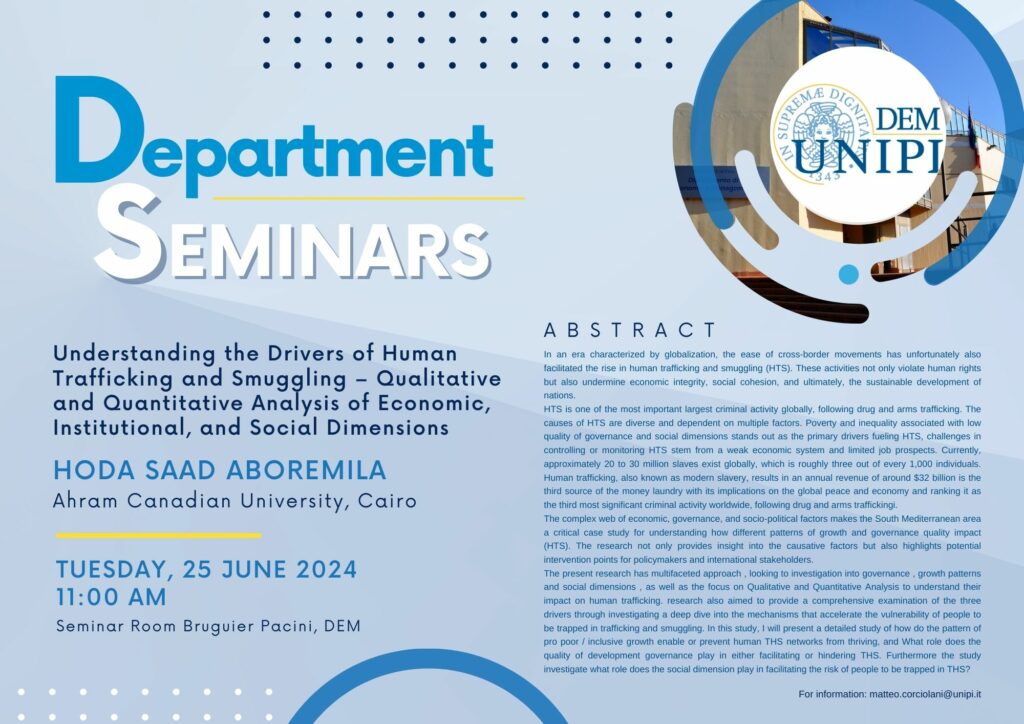Date: Tuesday, 25 June 2024, at 11:00 am
Venue: Seminar Room Bruguier Pacini, DEM
Speaker: Hoda Saad AboRemila (Professor of Economics, Ahram Canadian University, Cairo; Visiting Professor, Pisa University, Department of Economics and Management)
Title: “Understanding the Drivers of Human Trafficking and Smuggling – Qualitative and Quantitative Analysis of Economic, Institutional, and Social Dimensions”
Abstract:
In an era characterized by globalization, the ease of cross-border movements has unfortunately also facilitated the rise in human trafficking and smuggling (HTS). These activities not only violate human rights but also undermine economic integrity, social cohesion, and ultimately, the sustainable development of nations.
HTS is one of the most important largest criminal activity globally, following drug and arms trafficking. The causes of HTS are diverse and dependent on multiple factors. Poverty and inequality associated with low quality of governance and social dimensions stands out as the primary drivers fueling HTS, challenges in controlling or monitoring HTS stem from a weak economic system and limited job prospects. Currently, approximately 20 to 30 million slaves exist globally, which is roughly three out of every 1,000 individuals. Human trafficking, also known as modern slavery, results in an annual revenue of around $32 billion is the third source of the money laundry with its implications on the global peace and economy and ranking it as the third most significant criminal activity worldwide, following drug and arms traffickingi.
The complex web of economic, governance, and socio-political factors makes the South Mediterranean area a critical case study for understanding how different patterns of growth and governance quality impact (HTS). The research not only provides insight into the causative factors but also highlights potential intervention points for policymakers and international stakeholders.
The present research has multifaceted approach , looking to investigation into governance , growth patterns and social dimensions , as well as the focus on Qualitative and Quantitative Analysis to understand their impact on human trafficking. research also aimed to provide a comprehensive examination of the three drivers through investigating a deep dive into the mechanisms that accelerate the vulnerability of people to be trapped in trafficking and smuggling. In this study, I will present a detailed study of how do the pattern of pro poor / inclusive growth enable or prevent human THS networks from thriving, and What role does the quality of development governance play in either facilitating or hindering THS. Furthermore the study investigate what role does the social dimension play in facilitating the risk of people to be trapped in THS?
Seminar organizers: Matteo Corciolani
Download area
Seminar Hoda Saad AboRemila – Poster
Information and contacts

